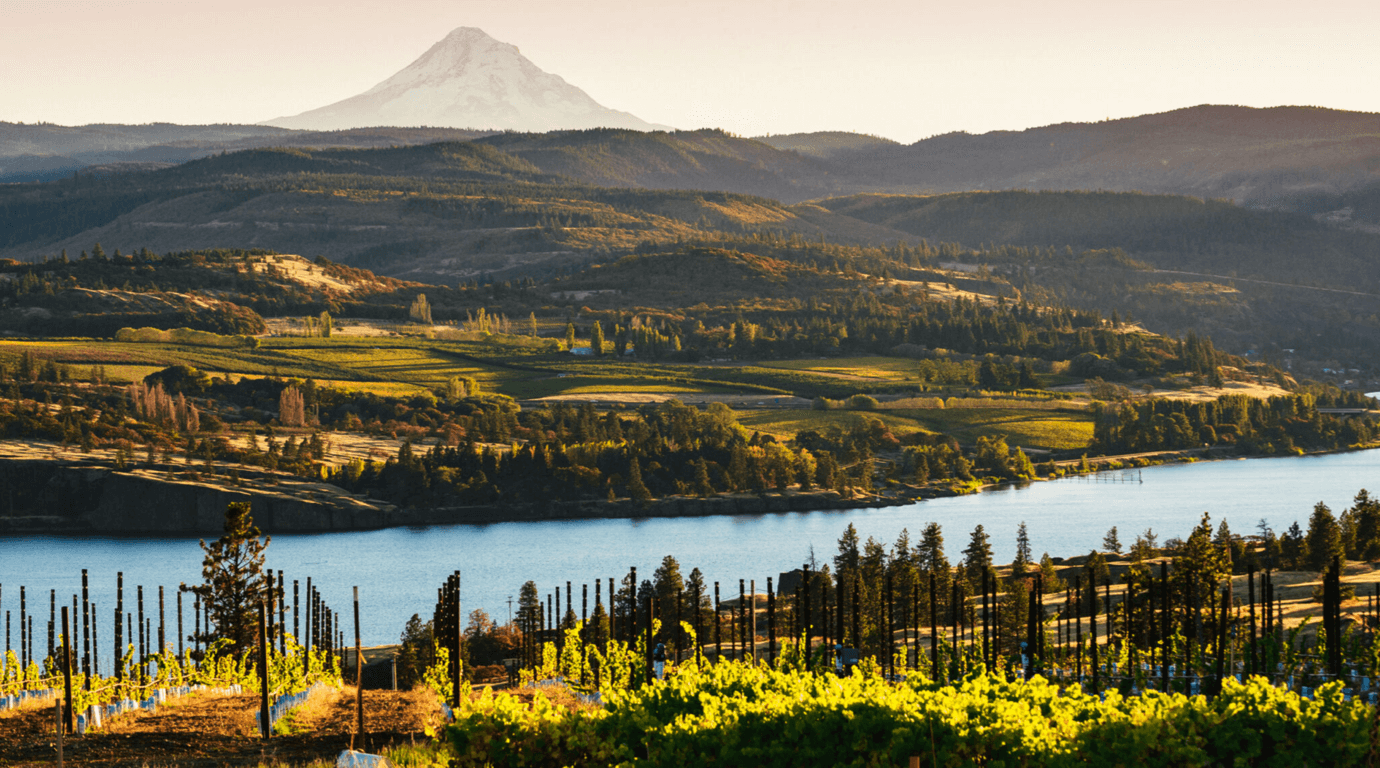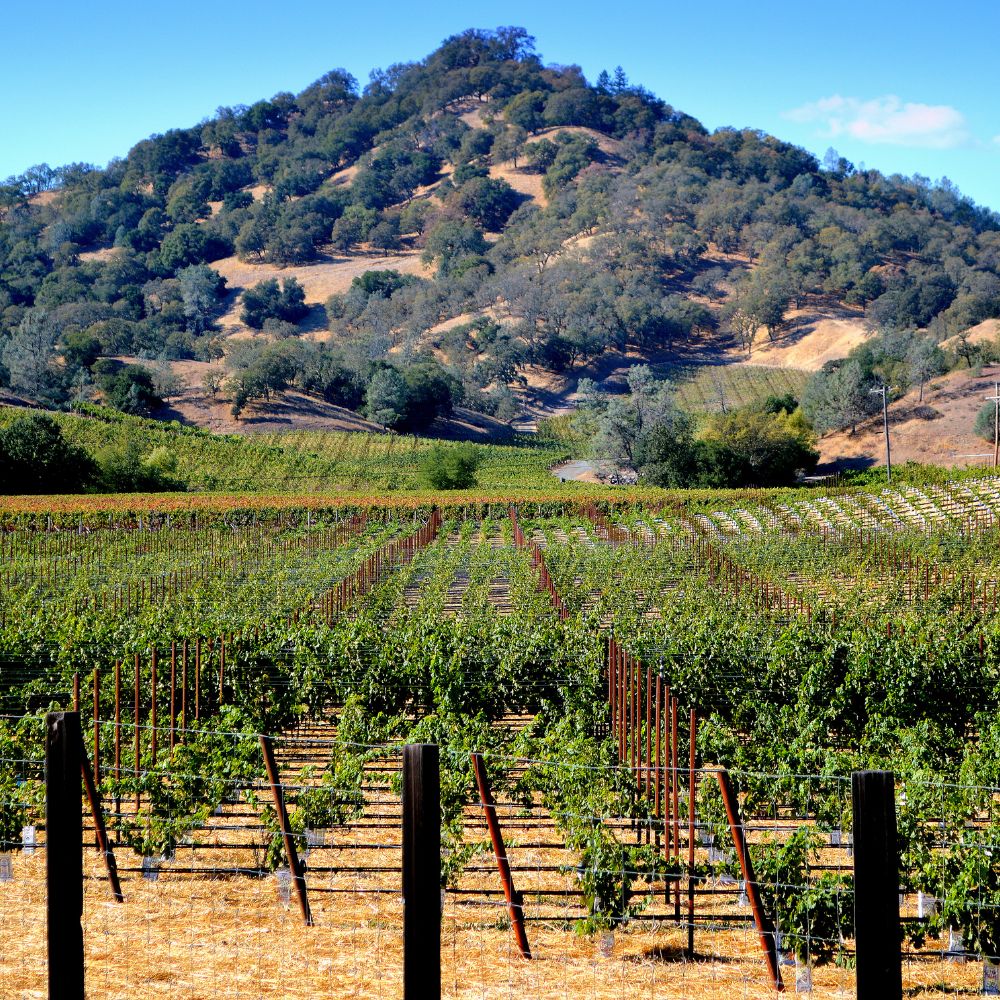
Marcus explaining that this Austrian Acacia barrel was made for his father’s 40th birthday and is still in use today.
Back in the 1990’s, the ninth generation of the Huber family ran a small family restaurant, which, as is traditional, would produce all the food themselves, rear pigs and make wine – all from 4 hectares of land. To supplement the farm produce, deer and wild boar would be hunted in the woods above the vineyard terraces. This idyllic Traisental lifestyle appears so laid-back and amiable, and such a contrast to London, that it would not have been surprising if the coming generations of the Huber family continued with this traditional family business.
This is where the ambitious son, Marcus, enters the arena. At the tender age of 21, he took over in the farm to focus on a new wine venture. In less than half a generation, he has rapidly grown the holdings to a total of 50 hectares, 25 of which he owns and the rest are on long-term contracts.
 The Traisental region is west of Vienna, near to and south of the Danube, and has the smallest area under vine in Austria, with less than 800 hectares. However, Marcus has no master plan to conquer Traisental. He does have an eye on acquiring a few more prize sites but prefers to limit further growth now to keep the business manageable and within the family, as currently, he has just his brother to share the increasing responsibilities.
The Traisental region is west of Vienna, near to and south of the Danube, and has the smallest area under vine in Austria, with less than 800 hectares. However, Marcus has no master plan to conquer Traisental. He does have an eye on acquiring a few more prize sites but prefers to limit further growth now to keep the business manageable and within the family, as currently, he has just his brother to share the increasing responsibilities.
Shrewdly, over the last 18 years he has been busy buying up plots on the highest parts of the slopes (350-380m) of the north-south oriented terraces. Mind-bogglingly, he now has almost 200 sites, averaging only just over ¼ of a hectare in size! I ask if this is a logistic viticultural nightmare but he says it is not too bad as they pragmatically work through the plots from north to south when pruning or harvesting.
Whilst Gruner Vetliner is ruler in the Traisental, with 63% of plantings, Riesling does exceptionally well in the south, especially on the higher terraces of calcareous conglomerate subsoil, with occasional marl, that face a fraction closer to the south than the east.

A piece of calcareous conglomerate, which looks and feels like stony concrete.
The continental climate here gives warm, dry summers and harvest time, with 30 days of temperatures in excess of 30 degrees usually. Whilst Marcus has managed to practise organic farming for many years, he has recently decided to jump through some red-taped hoops and apply for certification, which after a 3 year qualifying period, is due in 2020.
10 years back Marcus built a new winery into the hillside of some of the original farm land and he has, recently, further extended it. With two levels in the winery he can gravity feed the wines, and all the cellars look tidier than a show home that Mrs Hinch has repeatedly cleaned! Apart from a few small old barrels of the tight-grained but neutral Acacia oak, for wines from his best sites, there are lots of shiny stainless-steel tanks.

The squeaky clean stainless steel tanks in the latest addition to the winery.
Whilst bygone images of shooting wild boar to feed the family and village inhabitants might intrude on the sensibilities of vegans, his wines are now clarified using pea protein only and, as such, are super vegan-friendly.
It seems to me that Marcus still has the drive and energy of a 21 year old, whilst benefiting from the experience he has gained growing grapes and making wine here for two decades. Consequently, he can channel his considerable charisma and business acumen in nurturing his clients in both the domestic and international markets.
I ask if he has a succession plan – to go to an eleventh generation – but his three daughters are far too young. Rather sweetly, he does mark the corner rows of his plots with a pink sprayed stake, to signal his affection for them from the vineyard terraces.
Settled into the tasting room at the winery we work through a tasting of 23 wines. Like Marcus, I would summarise his wines as toned, precise, handsome and charming.

The tasting room was a welcome respite from the chilly winter weather
The Riesling ‘Engelsberg’, which translates to Angel’s Hill, awakens and heightens my senses with its squeaky dryness, green apple crunch, juicy yellow plum, waxy texture and hint of sea spray.
A really refreshing pale rosé grabs my attention too. Made from early harvested Zweigelt grapes, it transports me away from the cold, snowy Austrian winter momentarily to a Mediterranean summer. This dry, bright pink wine reminds me of freshly picked, home-grown tomatoes, summer herbs and green olives and, put simply, is joyous. A sommelier in our group suggests it would be perfect with a cherry tomato, basil and goats cheese salad: I agree, we drink to that and say, “Prost!”




